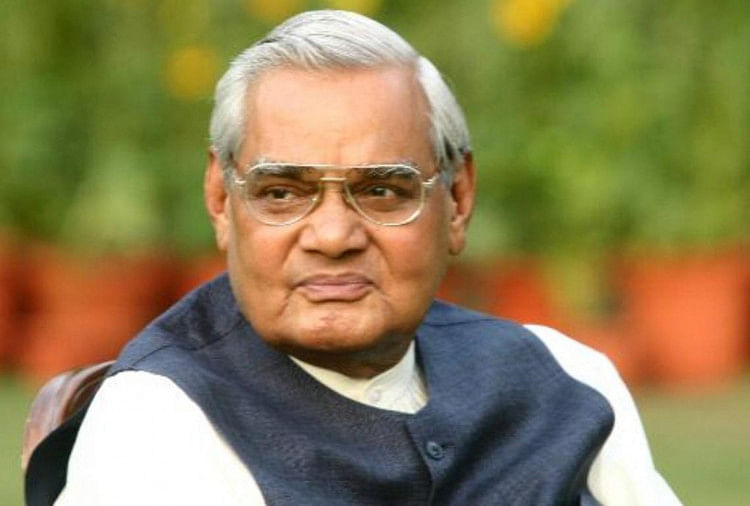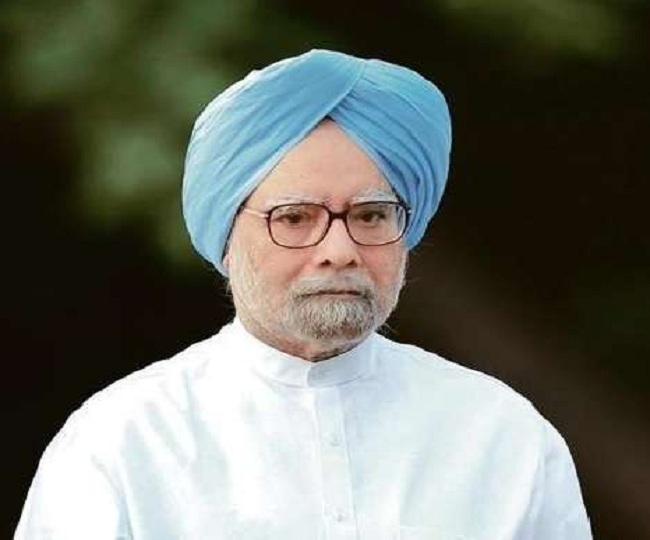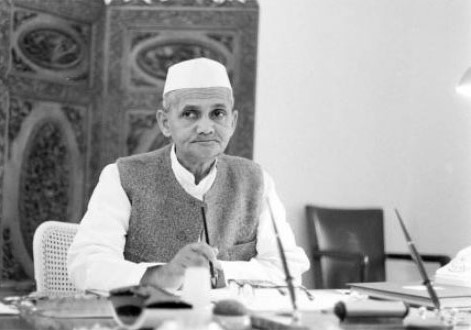Lal Bahadur Shastri, India's third and second permanent Prime Minister,
was born on October 2, 1904, in a very low-class family in Mughalsarai,
Uttar Pradesh. His real name was Lal Bahadur Srivastava. Shastri's
father Sharda Prasad Srivastava was a poor teacher who later rose to the
post of clerk in the Revenue Department of the Government of India. Lal
Bahadur was educated at Harishchandra High School and Kashi Peeth and
after passing his post-graduation examination here, he was awarded the
title of 'Shastri'. After that he joined the Bharat Sevak Sangh. This is
where his political career started. Seeing his talent and loyalty, after
the death of Jawaharlal Nehru, the first Prime Minister of India, the
Congress Party handed over the responsibility of the Prime Minister's
post to Lal Bahadur Shastri.
4- Gulzarila Nanda

Lal Bahadur Shastri, India's third and second permanent Prime Minister,
was born on October 2, 1904, in a very low-class family in Mughalsarai,
Uttar Pradesh. His real name was Lal Bahadur Srivastava. Shastri's
father Sharda Prasad Srivastava was a poor teacher who later rose to the
post of clerk in the Revenue Department of the Government of India. Lal
Bahadur was educated at Harishchandra High School and Kashi Peeth and
after passing his post-graduation examination here, he was awarded the
title of 'Shastri'. After that he joined the Bharat Sevak Sangh. This is
where his political career started. Seeing his talent and loyalty, after
the death of Jawaharlal Nehru, the first Prime Minister of India, the
Congress Party handed over the responsibility of the Prime Minister's
post to Lal Bahadur Shastri.
5- Indria Gandhi
/IndiraGandhi1983HultonGetty-56a042a63df78cafdaa0b882.jpg)
Indira Gandhi was the most charismatic, controversial political leader to lead the country. She served as Prime Minister from 1966–1977 and again from 1980 until her death in 1984. The daughter of the first prime minister, Jawaharlal Nehru, often described as an only child, was raised in tragic circumstances. He lost his mother at an early age and Nehru often remained in jail during the independence movement. He spent most of his childhood in the company of servants and attended various boarding schools.
6- Morarji Desai

Shri Morarji Desai was born on February 29, 1896 in Bhadeli village, now in the Bulsar district of Gujarat. His father was a school teacher and a strict disciplinarian. From his childhood, young Morarji learnt from his father the value of hard work and truthfulness under all circumstances. He was educated St. Busar High School and passed his matriculation examination. After graduating from the Wilson Civil Service of the then Bombay Province in 1918, he served as a Deputy Collector for twelve years.
7- Charan Singh

Chaudhary Charan Singh was also the Home Minister of India, Deputy Prime Minister and twice Chief Minister of Uttar Pradesh. He was the fifth Prime Minister of India. Charan Singh was considered a flamboyant leader who raised the voice of the farmers. Chaudhary Charan Singh's tenure as Prime Minister was from 28 July 1979 to 14 January 1980. He became the Prime Minister of the country with the help of Samajwadi Party and Congress. He had the support of 'Congress In' and CPI from outside, but he did not join his government. Along with Gandhian ideology, he lived his life till the end. A sense of loyalty to the country was awakened in them. He was a true friend of the farmers. In history, his name is taken more as a farmer leader than as a prime minister.
8- Indria Gandhi
/IndiraGandhi1983HultonGetty-56a042a63df78cafdaa0b882.jpg)
Indira Gandhi was the most charismatic, controversial political leader to lead the country. She served as Prime Minister from 1966–1977 and again from 1980 until her death in 1984. The daughter of the first prime minister, Jawaharlal Nehru, often described as an only child, was raised in tragic circumstances. He lost his mother at an early age and Nehru often remained in jail during the independence movement. He spent most of his childhood in the company of servants and attended various boarding schools.
9- Rajiv Gandhi

Rajiv Gandhi was the first young Prime Minister of India, at the age of 40, he became the Prime Minister. After the death of Indira Gandhi in 1984, Rajiv Gandhi was won by an overwhelming majority. He was the ninth Prime Minister of India. He was a patient person of very simple nature. Important decisions were always taken after consultation with the party people. It was a reflection of a very patient youth. It had the image of a new experience for India. He led the country towards modernity. Many decisions and changes were made in their interest to advance the youth. He was not averse to running politics easily, posthumously he was awarded the "Bharat Ratna" in 1991.
10- Vishwa Pratap Singh

The son of Raja Bahadur Ram Gopal Singh, Shri V.P. Singh was born on 25 June 1931 in Allahabad. He received his education from Allahabad and Poona University. He was married to Mrs. Sita Kumari on 25 June 1955 and has two sons.
Scholar Shri V.P. Singh was the founder of Gopal Vidyalaya Inter College located at Korao, Allahabad. He was also the President of the Students' Union of Uday Pratap College, Varanasi in 1947-48 and the Vice President of the Allahabad University Students' Union. He actively participated in the Bhoodan movement in 1957 and donated a well situated farm in Pasna village of Allahabad district.
11- Chandra Shekhar

Very few Indian politicians understand the problems of the country and are able to find solutions. One such victorious politician is Chandrashekhar Singh, who became the 8th Prime Minister of India after VP Singh. His tenure was short, but he is remembered for his tenure as a strong Prime Minister and for his effective work in the politics of India.
The situation in the country was passing through a very critical phase due to the high mistrust created during the tenure of the former Prime Minister, at that time there was a need for such a leader, who would work in the national interest above personal interests. Chandrashekhar gave good politics to the country in these circumstances. Despite being in office for a short period of time, he displayed his leadership qualities thoroughly and with politeness.
12- P. V Narasimha Rao

Narasimha Rao also participated in the freedom movement. He was also in the Andhra Pradesh cabinet from 1962 to 1971. In 1971, Rao became a strong leader in state politics. He was also the Chief Minister of Andhra Pradesh from 1971 to 1973.
Due to his loyalty to Indira Gandhi, he gained a lot of political mileage and his political stature also increased. He also looked after the Ministry of Home Affairs, the Ministry of External Affairs and the Ministry of Defence. He saw the tenure of both Indira Gandhi and Rajiv Gandhi. Both the leaders respected him for his scholarship and ability.
13- Atal Bihari Vajpayee

Atal Bihari Vajpayee, who was the Prime Minister thrice in Indian history, was born on 25 December 1924 in a middle-class family in a village in Gwalior (ancestral village - Bateshwar) of Madhya Pradesh district. His father Krishna Bihari Vajpayee was also a teacher and poet. His mother's name was Krishna Devi Vajpayee and he also had 7 siblings, whose names we will tell you further.
14- H. D Deve Gowda

HD Deve Gowda was the 11th Prime Minister of India, as well as the 14th Chief Minister of Karnataka. HD Deve Gowda was the leader of the Janata Dal political party, and was also elected MP from Hassan district of Karnataka. Deve Gowda ji entered politics at the age of 20 after completing his graduation, initially he joined the Congress party. Born in a middle-class family, Deve Gowda ji understood the problems of the farmers very well, he fought many battles for the rights of the farmers and also launched a campaign.
15- Inder Kumar Gujral

Inder Kumar Gujral was the 15th Prime Minister of the Republic of India. He took an active part in the Indian freedom struggle and went to jail during the Quit India Movement of 1942. Before becoming the Prime Minister of India in April 1997, he served in various positions in the Union Cabinet. He held important positions such as Minister of Communications, Minister of Parliamentary Affairs, Minister of Information and Broadcasting, Minister of External Affairs and Minister of Housing. Before joining politics, he also worked for some time as a journalist in the Hindi service of BBC. In 1975, when he was the Minister of Information and Broadcasting in the Indira Gandhi government.
16- Atal Bihari Vajpayee

Atal Bihari Vajpayee, who was the Prime Minister thrice in Indian history, was born on 25 December 1924 in a middle-class family in a village in Gwalior (ancestral village - Bateshwar) of Madhya Pradesh district. His father Krishna Bihari Vajpayee was also a teacher and poet. His mother's name was Krishna Devi Vajpayee and he also had 7 siblings, whose names we will tell you further.
17- Dr Manmohan Singh

The seventeenth and current Prime Minister of India, Manmohan Singh was born on September 26, 1932, in a small village called 'Gah' in Pakistan. Manmohan Singh's family came to India after the partition of the country. He had a special inclination towards studies from the very beginning. He understood the importance of education very well.
Manmohan Singh completed BA (Hons) from Panjab University in top class. After this, in 1954, he also secured the first position in MA (Economics) from here. He did his Ph.D. He went to Cambridge University to get it. degree where he was awarded the RITES Award for Outstanding Performance.
18- Narendra Modi

Narendra Modi, the Prime Minister of India and MP of Varanasi, was born on 17 September 1950 in Vadnagar, Gujarat in a poor Gujarati family. Narendra Modi is the first person born in independent India to become the Prime Minister of India. He has become the Prime Minister of India for the second time in a row and has also been elected as a Lok Sabha MP from Varanasi. As a child, Modi helped his father sell tea at the railway station. He joined the RSS at the age of eight.
19- Narendra Modi

Narendra Modi, the Prime Minister of India and MP of Varanasi, was born on 17 September 1950 in Vadnagar, Gujarat in a poor Gujarati family. Narendra Modi is the first person born in independent India to become the Prime Minister of India. He has become the Prime Minister of India for the second time in a row and has also been elected as a Lok Sabha MP from Varanasi. As a child, Modi helped his father sell tea at the railway station. He joined the RSS at the age of eight.
Frequently Asked Question - Prime Minister of India List
Q.1 Who is the First Prime Minister of India ?
Answer :Pandit Jawaharlal Nehru is a First Prime Minister of India.
His Working as Prime Minisiter was from 15th Augyst 1947 to 27 May 1964 .
Q.2 Who is First Female Prime Minisiter of India.
Answer :Indira Gandhi was the first and the only female Prime Minister of India till date.
Q.3 Which Article deals with the Appointment of the Prime Minister ?
Answer :Article 75 of the Indian Constitution deals with the appointment of the Prime Ministers and other ministers of India.
Q.4 Article 75 of the Indian Constitution deals with the appointment of the Prime Ministers and other ministers of India ?
- Indira Gandhi
- Jawaharlal Nehru
- Lal Bahadur Shastri
- Rajiv Gandhi
Answer : Lal Bahadur Shastri




/IndiraGandhi1983HultonGetty-56a042a63df78cafdaa0b882.jpg)










